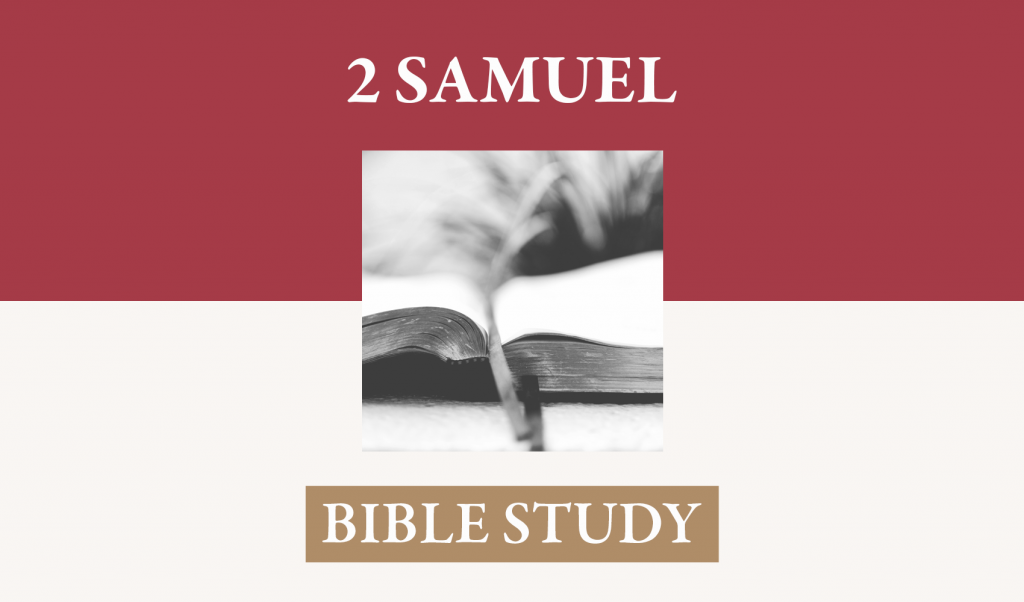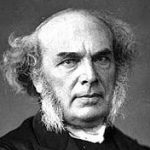This lesson has the story of two men, both sons of David who are examples of James’s inspired morphology of sin: “But each person is tempted when he is lured and enticed by his own desire. Then desire when it has conceived gives birth to sin, and sin when it is fully grown brings forth death” James 1:14, 15). This is the working out of the temporal judgment on the house of David, “The sword shall never depart from your house” (2 Samuel 12:10).
I. Amnon was consumed by a singular lust. Even as David had nursed his lust for Bathsheba, and went to some pains to bring her to him, so Amnon will not put to death his lust for his half-sister Tamar.
A. Amnon had fixated on the physical appearance of Tamar.
- The text tells us she was beautiful and that Amnon loved her.
- In light of the entire story, this clearly means that he had become enamored of her physical appearance and could think of little else than finding pleasure in her body.
- He worried about this constantly, but could not figure out a way to consummate his desire. “It seemed hard to Amnon to do anything to her.”
- The difficulty was enhanced in that she was a virgin, the kings’ daughter, Absalom’s full sister, and his half-sister. His relation with her was forbidden by the law of consanguinity in Leviticus 18:9. The perversity of his action was obvious to him, and yet his desires overruled his reason and understanding.
- So obsessed was he that a very observant man, Jonadab, asked him why he was depressed “morning after morning.” Amnon told him, “I am in love with Tamar, the sister of my brother Absalom.” This had nothing to do with love as defined in many places in the New Testament (1 Corinthians 13; 1 John 4:7-21) but an undisciplined lust for physical union.
B. Jonadab, David’s nephew, helped devise a plan to leave Tamar alone with Amnon in Amnon’s bedroom (verse 5).
- Jonadab seemed to have an especially high sensitivity to the perverse motivations of people and he accommodated himself to their intent without any admonition to the contrary or warning of the devastation such actions would cause. Not only is active perversity an obvious outworking in human conduct of the fall, but the approval and encouragement of such is also: “Though they know God’s decree that those who practice such things deserve to die, they not only do them but give approval to those who practice them “ (Romans 1 32).
- The power of perverse emotions first appears in the biblical text in Genesis 4. Cain was angry for the rejection of his offering before the Lord. God came to him and said, “Why are you angry? And why has your countenance fallen? If you do well, will not your countenance be lifted up? And if you do not do well, sin is crouching at the door; and its desire is for you, but you must master it.” He did not master it, and he murdered his brother.
C. Amnon carried through with the deceit suggested by Jonadab. He added layer upon layer of transgression to accomplish his rapid and determined tumble into a despicable violation of law and of persons.
- He put a veil of approval over the entire ugly plot by engaging his father the king in arranging for the presence of Tamar. He feigned the need for the emotional comfort of seeing a family member care for him in a time of physical weakness. “In my sight . . . from her hand.” How sickly manipulative!
- He added perversity to the entire act by feigning sickness and asking for an act of kindness. He took advantage of the compassion of another to give expression to his own destructive passion on the very person that was showing him kindness.
- Amnon is living out Paul’s description of lostness: “For we ourselves were once foolish, disobedient, led astray, slaves to various passions and pleasures, passing our days in malice and envy, hated by others and hating one another” (Titus 3: 3).
- He overcame her objections to being violated personally and took no account of the arguments she put forth to dissuade him. She appealed to the law: “Such a thing is not done in Israel.” She knew they were to be a peculiar people, unlike the nations who were ungoverned by divine law. She appealed to her own status as a virgin and the reproach that would be hers; she appealed to his not acting like a disgraceful person; she even appealed to a possible arrangement through the authority of the king. According to Mosaic law this would have been forbidden, though the example of Abraham would have allowed it (Genesis 20:12), and she was willing to endure a lesser evil for the sake of avoiding the scandal and dissolute character of this one.
D. Having fulfilled his lust, Amnon sent her away in anger and hatred. Having raped her, all the intensity of his passion did not diminish but turned against her.
- He hated her with a greater passion than that which drove him to violate her physically. Now the guilt of the action sets in and he transfers the entirety of it to her.
- Again, even in this distraught condition, she appeals to some sense of reason, seeking some amelioration of a tragic and sinful action. He, however, charges his way forth by pure strength and authority, ordering her to be thrown out. Sin rendered him irrational in his posture toward her from the beginning of this narrative. His having carried out his unlawful, passion-driven action now only increases the mindless fury with which he carries through the matter. He puts aside any sense of shame, repentance, compassion, or responsibility and places the horror of the event squarely on her.
- She assumes a posture of shame, repentance, and mourning by tearing the sleeves of her clothing and putting ashes on her head. She was hiding nothing but showed that her virginity was gone and tearful lament was all she could express. During this entire ordeal of abuse and incestuous predatorship, Tamar retained a sense of rationality governed by moral principles. Even after the event, she thought about some honorable resolution, but Amnon was driven only by unleashed desire, first of lust and then of hate.
II. Absalom gave fertile ground for hatred and revenge.
A. Absalom discerned what had happened to Tamar. Her posture of mourning plus his knowledge of Amnon’s character, and probably of verbal cues of Amnon’s desire for Tamar, led him to conclude what had happened.
B. He made provision for her in his home, and immediately began his plan for revenge (20, and cf. 32).
- As her full brother, Absalom took responsibility for Tamar’s security and gave her a place to hide from public humiliation. His response indicates that he had anticipated such an event and had already given thought to how it should be handled. He did not want public justice done (Leviticus 20:17), for he wanted to exact personal vengeance. “Absalom hated Amnon because he had violated his sister Tamar.”
- David was angry, but did not take just action. As king he was responsible for order according to laws in the nation, but familial ties did not allow his anger to be regulated by the revealed system of justice. His lack of action allowed Absalom’s vengeful purpose to fester and mature.
C. Absalom nursed his hatred until it was ripe with a full sense of justification for deceit and vengeance. Hatred has a way of making the vengeful seem righteous in their own eyes.
D. Like Amnon two years earlier, Absalom carried through an elaborate plan to allow his desire to bear the fruit of sin and death.
- For two years he raised sheep to bring them to a point of yielding their wool. He scheduled a time for their shearing in order to market the wool.
- This success called for family celebration, and Absalom arranged for all his brothers to come to a party where plenty of wine would be served. It all seemed like a wonderful plan for fraternal conviviality. Feigned friendship and joy used as an avenue for the ultimate expression of hate displays the wickedness of the human heart as clearly as any of the varieties of sin invented by fallen humanity.
- Absalom instructed his servants to strike down Amnon when his heart was “merry with wine.” What an irony! Merriness as a prelude to a quick death by cold steel. Another irony is Absalom’s call for his servants to be “courageous and valiant” as they murder a drunk man on the orders of their vengeful master. The entire event was an attempt to hide the true horror of such a scheming way to commit fratricide. Absalom wanted them to see the act as one of courage and valor.
III. Unmortified sin brings destruction and spreads its evil legacy abroad
A. Thinking that they were celebrating the good fortune of one brother, David’s sons were witness to the fulfillment of a conspiracy to murder one of their brothers. All of them were there and saw the outrage and then feared for their own lives. They scurried fearfully away perhaps wondering how extensively contrived was this vengeful plan of Absalom. “Each mounted his mule and fled.”
B. David’s entire house mourned for what they thought was the death of all the sons. It is not clear as to why the report came to David that Absalom had killed all the sons of David, but the surprising shift from merriness to murder had the natural tendency to multiply itself in the report. David and all his servants immediately threw themselves into a pall of mourning.
C. Jonadab, privy it seems to the darker side of all these events and motivations, said that only Amnon had been killed, for this had been Absalom’s plan from the very day of the rape of Tamar. It is right to know the depth of human sin from the standpoint of divine revelation, and also to have discernment about the unsearchable depths of deceit still present through the power of indwelling sin, but to know the route of evil from having practiced it and contrived plans to accommodate it is a frightening trait of personality.
D. When the sons arrive at the king’s house, they all mourned the death of Amnon and the treachery of Absalom.
E. Absalom went into a self-imposed exile of three years in Geshur. He would emerge from this nursing a new resentment and plotting a new overthrow.
IV. One of the reasons God included this narrative in Scripture is that we might know, and fear, both the infinite ugliness and destructive power of sin as well as the infinite glory of the means by which God has designed to forgive sins through his Son Jesus Christ.
A. In his personal narrative Jonathan Edwards has expressed well his personal discovery of the depths of sin present in his, and in every, human heart: He discovered “innumerable and bottomless depths of secret corruption and deceit.” He powerfully expressed his view of his own wickedness as “like an abyss infinitely deeper than hell.” Since these discoveries came to him even as he was maturing rapidly as a believer and a theologian, he noted, “It is affecting to me to think, how ignorant I was, when I was a young Christian, of the bottomless, infinite depths of wickedness, pride, hypocrisy and deceit left in my heart.”
B. Correspondingly, he expressed the infinite wonder of the gospel in his work, God glorified in Man’ Dependence: “The benefit is doubly infinite, in that in him we have deliverance from an infinite, because an eternal, misery, and do also receive eternal joy and glory. The grace in bestowing this gift is great in proportion to our unworthiness to whom it is given; instead of deserving such a gift, we merited infinitely ill of God’s hands. The grace is great according to the manner of giving, or in proportion to the humiliation and expense of the method and means by which a way is made for our having the gift. He gave him to dwell amongst us; he gave him to us incarnate, or in our nature; and in the like though sinless infirmities. He gave him to us in a low and afflicted state; and not only so, but as slain, that he might be a feast for our souls.”
C. These events give historical substance to the theological proposition of Romans 8:6 – 13 – “For the mind set on the flesh is death, but the mind set on the Spirit is life and peace, because the mind set on the flesh is hostile toward God; for it does not subject itself to the law of God; for it is not even able to do so, and those who are in the flesh cannot please God. . . . So then brethren, we are under obligation, not to the flesh, to live according to the flesh—for if you live according to the flesh, you must die; but if by the Spirit you are putting to death the deeds of the body you will live.”Among the many other Scriptures that contrast the life before and after conversion, consider Colossians 3:1-17.

















